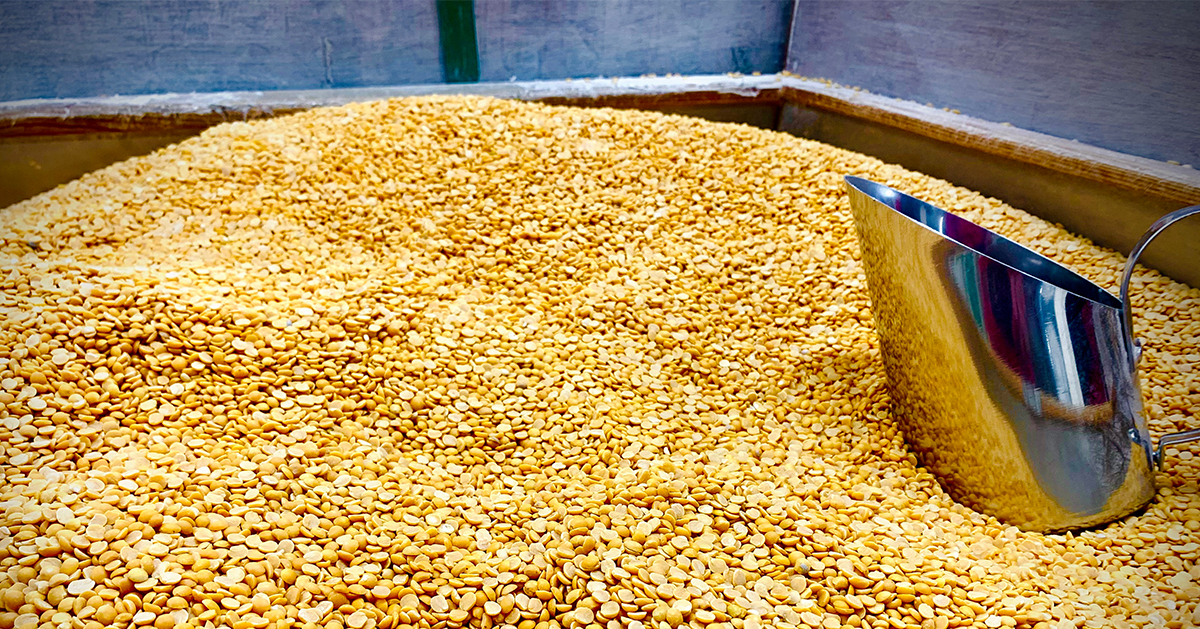January 17, 2024
The e-Samridhi Portal, facilitated by Nafed and the National Cooperative Consumers' Federation of India, offers farmers a seamless process for registration, sales, and direct payments for their tur dal produce.


In a move towards its goal of achieving self-sufficiency in pulse production by 2028, the Indian government has unveiled the e-Samridhi Portal launched by Union Home and Cooperation Minister Amit Shah. With tur production projected to reach 3.4 million tonnes in the current fiscal year, the government is aiming for a reduction of over 35% in pulse imports.
A comprehensive ecosystem, the portal focuses on transparency and accountability in the procurement process, supporting farmers' confidence in the system.
A core feature of the portal is the flexibility it provides to registered farmers. Apart from selling through government channels, farmers can opt to sell their produce in the open market. Minister Shah has highlighted the commitment to fair compensation by ensuring that procured pulses are bought at either the Minimum Support Price (MSP) or the prevailing market price.
Moreover, the portal introduces a real-time pricing mechanism that allows farmers to make informed decisions about selling their produce. This dynamic pricing model ensures that farmers receive fair compensation based on market demand and supply, aiming to create a more equitable agricultural landscape.
The Indian government is actively promoting best agricultural practices through the portal, providing farmers with resources and information on sustainable farming techniques. This includes guidance on organic farming, water conservation measures, and crop rotation strategies, fostering a holistic approach to agriculture. As such, the e-Samridhi Portal is expected to deliver multifaceted benefits, including contributing to nutritional security, enhancing soil fertility through nitrogen fixation, and conserving water due to the lower water requirements of pulses crops.
To further support the agricultural sector, the government is investing in research and development. Collaborations with research institutions and agricultural experts are underway to identify and implement innovative technologies that can enhance crop yield, quality, and overall farm productivity.
Minister Amit Shah has plans to extend a similar facility for other essential pulses like urad and masoor in the future. Already, Rs. 6.8 million has been transferred to 25 farmers as payment for tur dal sales through the portal. Nafed and NCCF will continue to procure pulses on behalf of the government, ensuring a buffer stock for food production security and working towards long-term national food security.
The government is also exploring partnerships with financial institutions to integrate the e-Samridhi Portal with direct benefit transfer mechanisms. The goal is to enable seamless and timely financial transactions and foster financial inclusivity within the agricultural community. Furthermore, the government is actively promoting digital literacy among farmers, conducting training programs to familiarize them with the e-Samridhi Portal and other digital tools. This effort aims to bridge the digital divide, ensuring that farmers across regions can harness the full potential of digital platforms for their benefit.
Disclaimer: The opinions or views expressed in this publication are those of the authors or quoted persons. They do not purport to reflect the opinions or views of the Global Pulse Confederation or its members.